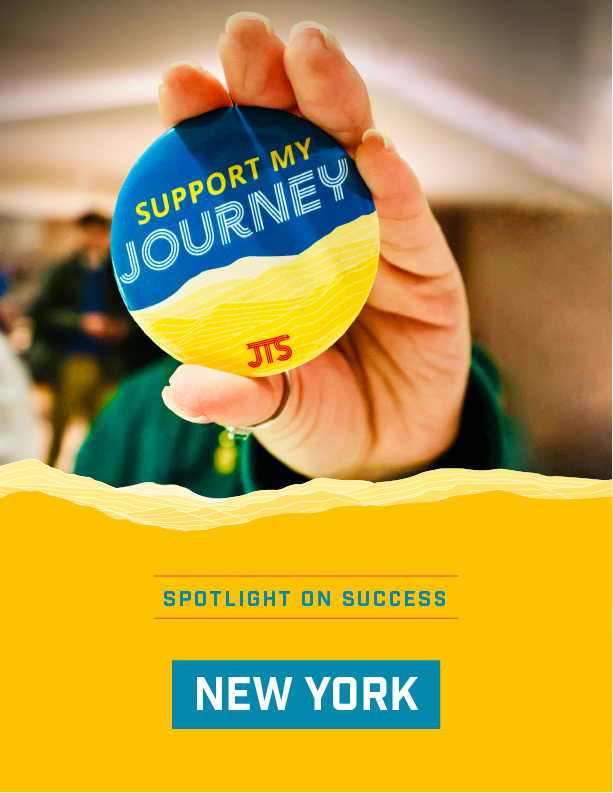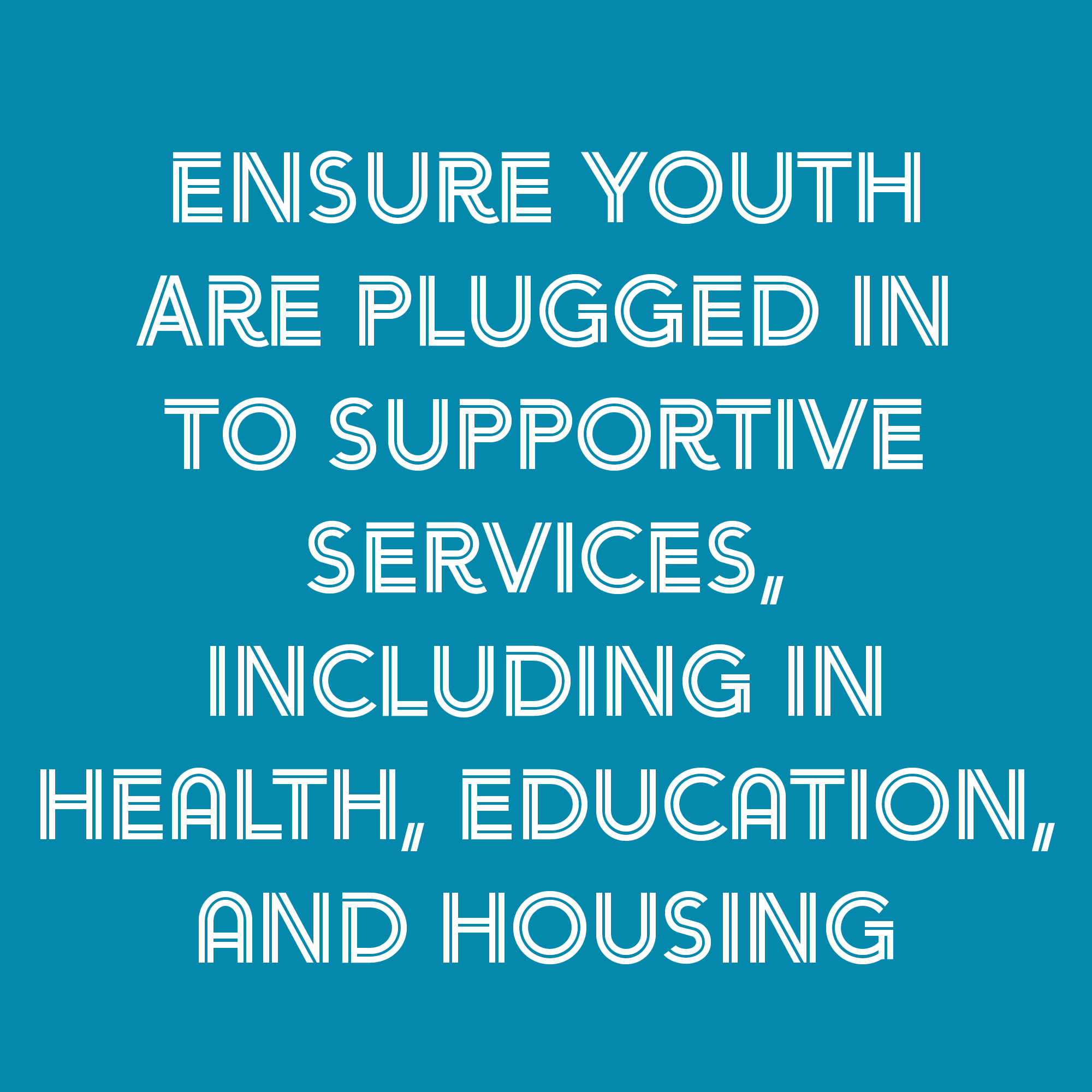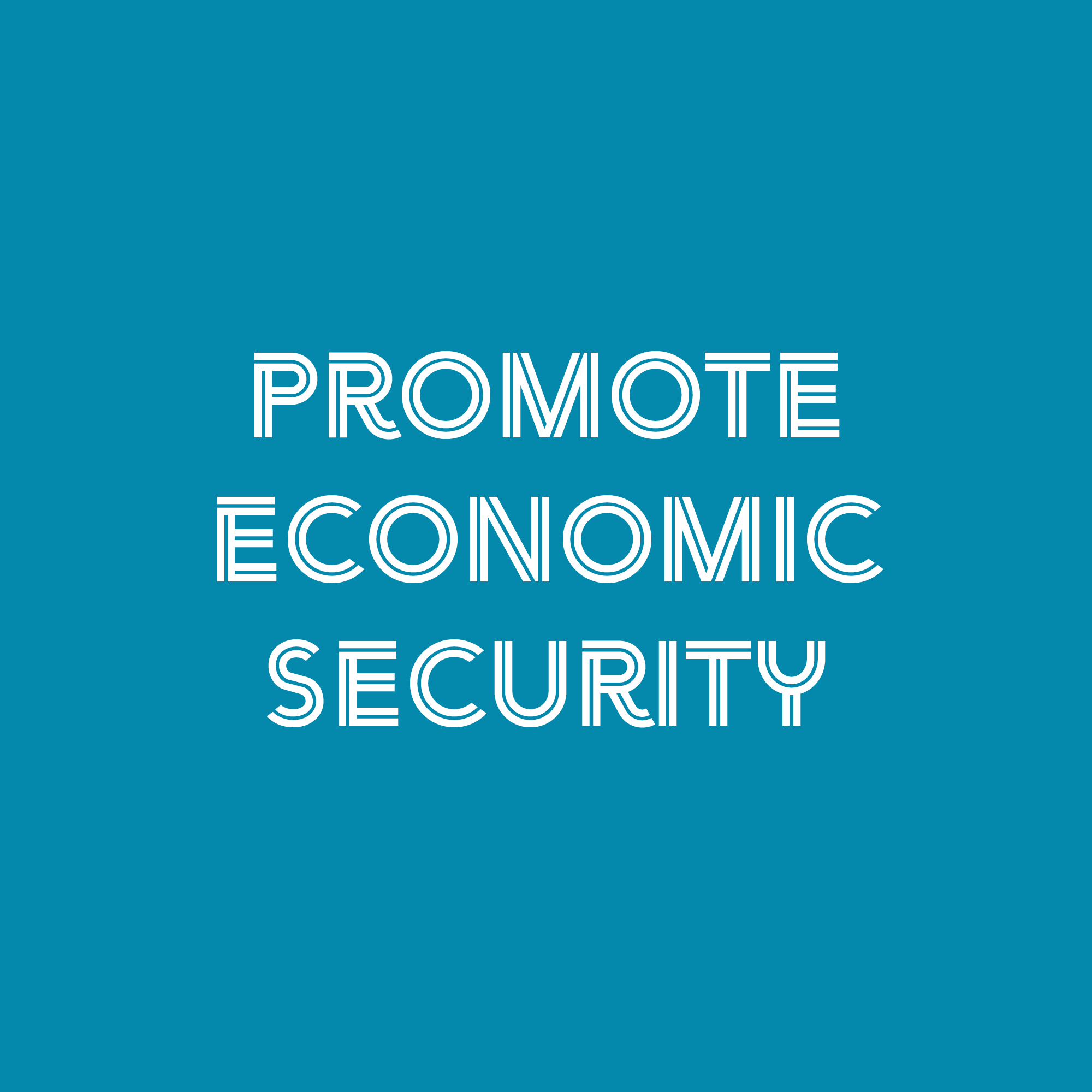Achieving Educational Success Through Fair Futures in New York City
The Journey to Success Campaign advocates for federal policy change to achieve better outcomes for youth who have experienced foster care. Many of our recommendations include policies and practices that are already being implemented in states and communities across the country, but could benefit from being available to all youth who spend time in foster care. Our Spotlight on Success series highlights programs and policies that exemplify the recommendations in the Journey to Success policy framework.
Fair Futures is a youth-led advocacy movement and coalition of over 100 organizations in New York City that was successful in securing and baselining $30.7 million in public funding for young people in foster care to have access to the Fair Futures model from 6th grade through age 26. The Fair Futures model provides 1:1 coaching, tutoring, and a range of academic, career, housing, and independent living supports so young people can reach their potential and transition successfully to adulthood. Two New York foster care agencies implemented an early version of Fair Futures that resulted in more than 90% of participants receiving a high school diploma or equivalent compared to only 22% of youth who’ve experienced foster care in NYC. Based upon this early success and strong cross-sector collaboration, the Fair Future coalition was able to successfully advocate for funding to support expansion of the model. The model was also expanded to the NYC juvenile justice sector with City funding and is piloted with private philanthropy in Buffalo, NY.
The Fair Futures model provides young people in foster care with comprehensive and long-term support from middle school through age 26. In middle school, the model includes a Middle School Education Specialist who monitors the academic performance of participants and advocates for educational resources tailored to the needs of each student. Specialists also help students access weekly, 1:1, trauma-informed tutoring sessions in their homes and connect students to extracurricular and summer activities. Another critical part of the Specialist’s role is to provide 1:1 support to all 8th graders with NYC’s complex high school selection process to ensure they enter a quality, best-fit school. Before Fair Futures, students in foster care entered high schools with graduation rates significantly below the system average and were overrepresented in the bottom 25% quartile of schools. Since Fair Futures launched, for the first time in history, 8th graders in foster care are attending high schools with an average graduation rate at/above the NYC system average.
For youth in high school and older, the model includes a professionally trained coach who builds a trusting relationship with the young person. The Coach provides social-emotional support, helps young people explore their options and develop goals, connects them to schools, programs, and opportunities in line with their interests/goals, and helps them persist in these settings and plan/prepare for the next step on their journey. Coaches celebrate young people’s success each step of the way and are there for them, no matter what. High school students also receive weekly tutoring, and older youth are supported in obtaining and maintaining housing and developing independent living skills. The Coach also works collaboratively with College, Career, and Housing Specialists and connects youth to facilitated peer groups.
Private philanthropy and a robust public-private partnership between the Foster Care Excellence Fund and the Administration for Children’s Services has enabled the model to successfully scale across the NYC foster care system to serve over 3,000 young people. The FCEF foundations pooled funding to launch the Center for Fair Futures (“the Center”), which provides model implementation and professional development supports to all 26 foster care agencies and 450+ Fair Futures staff. This includes a suite of trainings, 1:1 technical assistance, learning communities, materials/tools, an online resource directory called One Degree, and an online platform that tracks young people’s goals/progress. As a result of these supports, a strong systemwide Fair Futures community has been built across the NYC foster care system.
Early results are strong, despite Fair Futures having been launched during the COVID-19 pandemic. In FY22:
Over 3100 young people were served and over 1500 coached.
81% of young people who were coached engaged with their Coach for 90+ days*
Of these, 90% achieved at least one academic, career development, and/or housing goal and an average of 3.8 goals each.
Chapin Hall is conducting a 5-year evaluation on Fair Futures outcomes and recently released an implementation study, which highlighted the quality and speed of implementation at such a large scale, particularly during the pandemic.
In addition to supporting Fair Futures implementation, the Center for Fair Futures also serves as a home for youth-led advocacy for the model, as well as a new youth-informed Innovation Arm. The Fair Futures Youth Advisory Board leads an advocacy coalition, which is now focused on expanding housing options for young people exiting foster care. They also support the Center to continuously improve the model and innovate, which led to the launch of the Center’s Innovation arm. All initiatives under the Innovation Arm are youth-informed and the Innovation team will collaboratively design, pilot, and (if successful) scale new programs/initiatives that address key gaps in the sector that young people say are critical to their well-being and success.
*Each “goal” represents a positive outcome, such as grade promotion, graduation, engagement in a career experience, applying to or persisting in a post-secondary setting, applying to or obtaining housing, etc.




